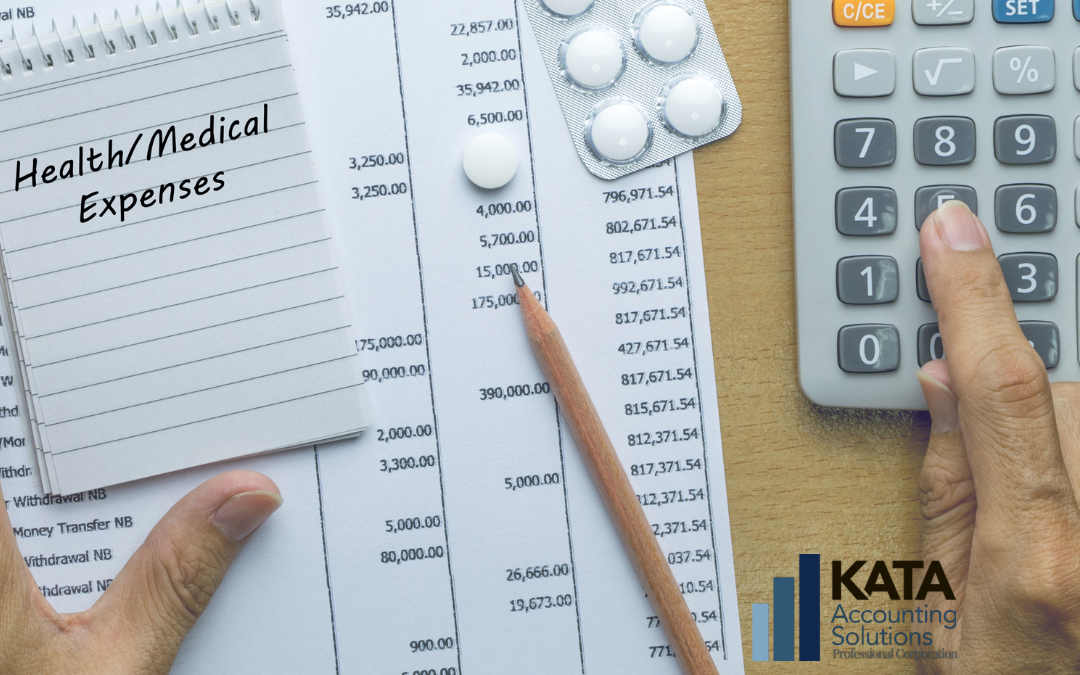How to Claim Medical Expenses
Armed with the right knowledge and guidance, claiming medical expenses in Canada can be a straightforward process that can yield significant benefits.
Let’s delve into the intricacies of this vital aspect of tax filing and explore how Canadians can maximize their tax credits while staying compliant with regulations.
What is a Medical Expense?
First and foremost, it’s crucial to understand what constitutes eligible medical expenses. The Canada Revenue Agency (CRA) defines medical expenses as costs incurred for medical services, treatments, and products that are not covered by insurance.
This encompasses a wide range of expenditures, including prescription medications, dental services, vision care, medical devices, and even certain travel expenses for medical treatments not available locally.
Some items that may qualify include:
- The patient paid a portion of a prescription drug
- Glasses
- A CPAP mask (if prescribed)
- RMT services
- Dental cleanings
- Travel and parking expenses (in some specific cases)
It’s essential to keep meticulous records of all medical-related payments, including receipts and invoices, to substantiate your claims during tax filing.
This is a frequently reviewed category when CRA reviews personal tax returns. It’s easy for them to deny credits as people often record the expenses off credit card or bank statements and don’t have the supporting documentation.
While many medical expenses are eligible for deduction, it’s important to note that not all healthcare costs qualify. For instance, over-the-counter medications, cosmetic surgeries, and health club memberships are typically excluded.
Consulting the CRA’s comprehensive list of eligible medical expenses or seeking advice from a tax professional can help ensure accuracy when claiming deductions.
Common Mistakes
Some common mistakes include:
- Claiming over-the-counter medications
- Claiming medical devices without a prescription
- Claiming expenses related to ineligible medical practices
- Claiming the full expense instead of only the portion paid by the taxpayer
Remember, if CRA catches you making mistakes one year, they are more likely to look deeper into your situation and review other years as well.
What Period Can I Claim?
A fundamental principle to bear in mind is that medical expenses can only be claimed if they were paid within a specific time frame that ends in the tax year. Eligible medical expenses can be claimed for any 12-month period ending in the tax year in question. This means that you don’t have to follow the calendar year.
For instance, if someone has a lot of expenses in the fall of 2022 that last up to July 31, 2023, it might be beneficial for them to use the period of August 1, 2022 to July 31, 2023 to make the claim on their 2023 T1 personal tax return.
What is the Medical Expense Tax Credit?
The Medical Expense Tax Credit (METC) provides tax relief for qualifying medical expenses. The METC allows taxpayers to claim eligible medical expenses for themselves, their spouse or common-law partner, and certain dependents.
Claiming these expenses can reduce the amount of federal tax owed, resulting in potential tax savings.
How Much Can I Claim?
Additionally, Canadians should be aware that there is a threshold for claiming medical expenses. Only expenses that exceed a certain percentage of the taxpayer’s net income can be claimed.
For the 2023 tax year, the threshold is set at 3% of net income or $2,635, whichever is lower.
This means that taxpayers can claim eligible medical expenses, but will only get the tax credit for the amount above their threshold.
It’s important to note that provinces and territories have maximum claimable amounts that vary.
Regardless, getting a tax credit for your medical expenses always helps and can provide relief for significant healthcare expenditures.
It’s a Credit, not a Deduction
Note that the METC is a non-refundable tax credit, not a deduction. You don’t get to take the entire expense off of your income.
For the amount above the threshold, you get a 15% federal tax credit, and the tax credit can only refund up to the amount of tax you’ve paid.
How to Claim the METC
When filing taxes, individuals can claim medical expenses on Schedule 1 of the T1 General form on lines 33099 or 33199.
This section allows taxpayers to detail their medical expenses and calculate the corresponding tax credit. It’s crucial to ensure accuracy and completeness when filling out this section to avoid potential discrepancies or audits.
Documents to Support the Medical Expenses Claim
Keep these documents in case the Canada Revenue Agency (CRA) asks to see them later:
- Receipts – showing the company or individual to whom the expense was paid.
- Prescriptions
- Certification in writing
- Form T2201, Disability Tax Credit Certificate
The List of common medical expenses from CRA would indicate if you need a prescription, or a certification in writing, and or if you need the Disability Tax Credit Certificate approved, to support your claim.
Additional Help
For Canadians facing financial hardship due to high medical expenses, certain provincial, regional and community programs and assistance measures may provide additional support.
These programs vary by community, region, province, and territory but may include subsidies for prescription medications, help with transportation, free or subsidized medical supplies, or coverage for specific healthcare services.
Exploring these resources can provide much-needed relief for individuals managing significant medical costs.
Claiming medical expenses in Canada requires careful attention to detail and adherence to the CRA’s guidelines. By understanding what constitutes eligible expenses, keeping thorough records, and leveraging available tax credits, Canadians can maximize their deductions and alleviate the financial burden of healthcare costs.
Whether it’s prescription medications, dental treatments, or specialized medical services, taxpayers can take proactive steps to optimize their tax savings while prioritizing their health and well-being.
If you’re uncertain, don’t hesitate to reach out to us. Kata Accounting is dedicated to assisting you every step of the way.
